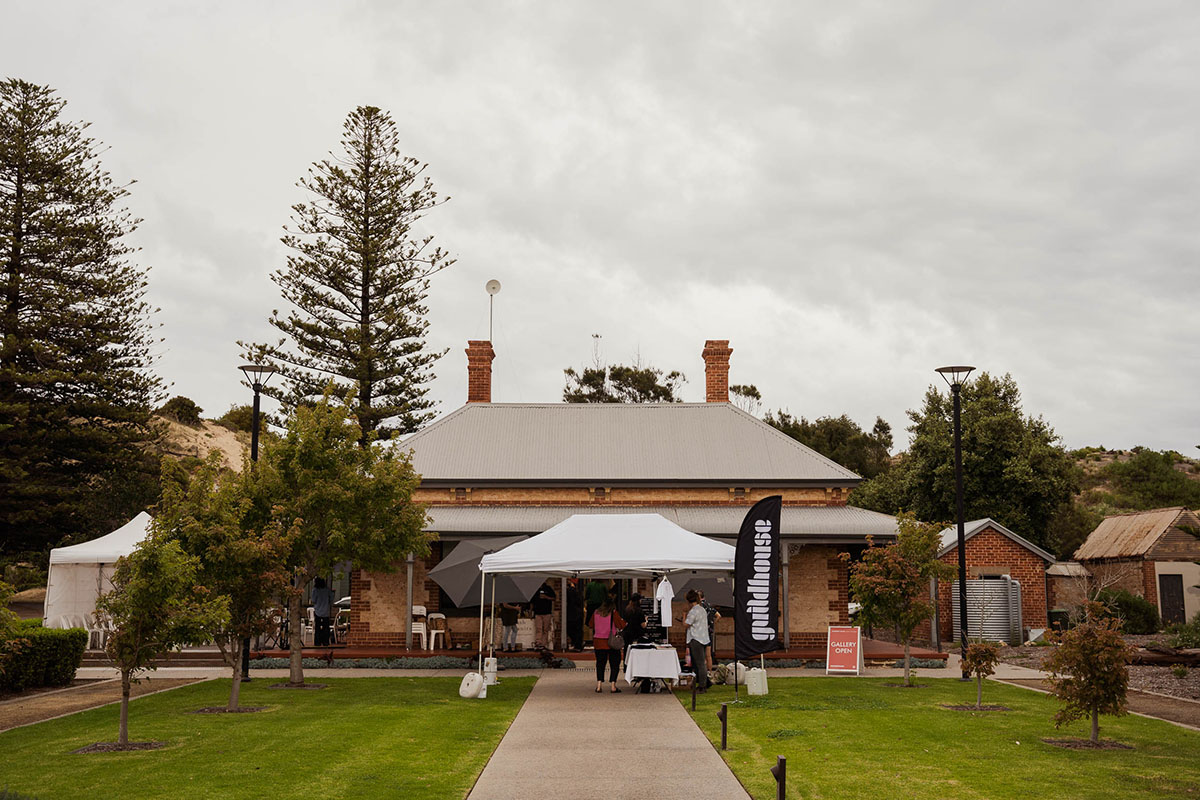
Hosted by Guildhouse and curated by Debbie Pryor, the Radical Practice Symposium was held at Tainbarang (Port Noarlunga) on 12 November this year. The theme of ‘radical practice’ challenged audience members, (mostly from the arts community), to think beyond the current status quo of practice, engagement, and power structures within the arts sector. While this broad topic can spring forth more challenges than solutions, given the current political climate and impending doom of climate change, the symposium had an optimistic tone and offered some realistic ways forward.
Across three live panels, local and interstate artists and arts workers spoke to their personal experiences and creative practices around how they find a meaningful and respectful approach to radical practice, working together and with community. For Debbie Pryor the event was about organising the elements and then steeping aside. ‘These are conversations we are all having, whether with a small network or in our own head, and I wanted to make sure there was a conversation happening widely, that the artists need to talk […] and to decide for themselves, [about] their art practice and sustainability.’
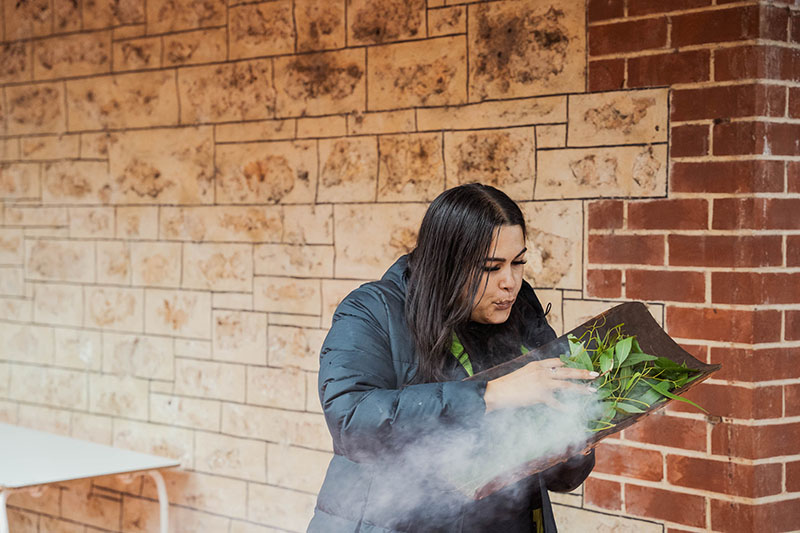
This was Guildhouse’s first symposium since the COVID-19 pandemic, though other public events have been held. On the grounds of Sauerbier House, Guildhouse created an unpretentious experience where guests perused local small business stalls and then gathered under tents to watch the panellists speak from the side veranda.
Sadly, the day coincided with one of the largest storms to hit Kaurna Yarta in recent years. We persisted through the first panel, huddled under tents as lightning struck through the grey clouds and thunder roared over the speakers. Unfortunately but necessarily, the event was cancelled halfway through the day and audiences were sent home for safety. But in the true spirit of radical practice, the speakers remained and recorded their talks inside Sauerbier House. Adaptation and resilience was in full swing under nature’s canopy, as if a warning of what’s to come if we don’t embrace and act on the issues of the day.
Within art, a central act of radical practice is not only moving away from dominant models of storytelling, but supporting space for marginalised communities to reclaim stories or share stories on a broader platform. This work is simultaneously liberating and a form of community justice for those previously marginalised voices. As Ali Gumillya Baker put it on the day,
I feel as though, fundamental to our work is justice for country but also justice for people and you know within our communities there is a lot of very recent histories that haven’t been recorded as part of the public narrative and these are only just being shared now.
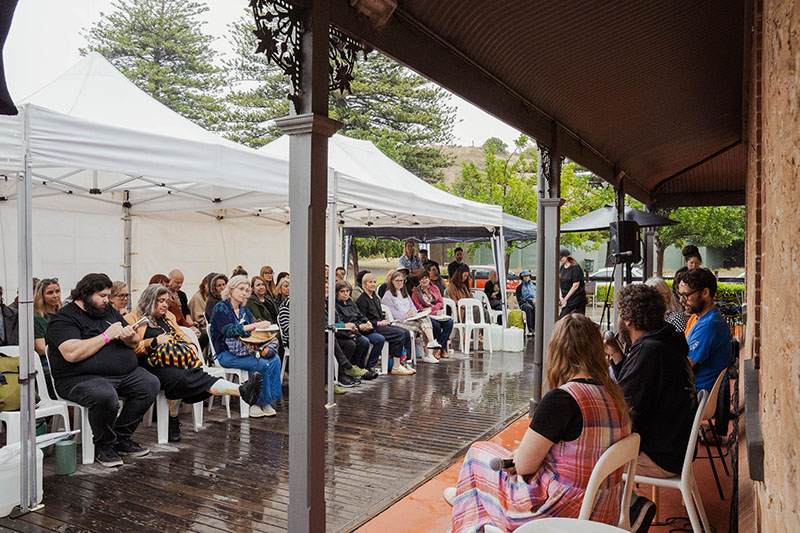
In the pursuit of creating space for community justice to exist, we are also challenged as a sector to rethink the ways we engage with communities, the relationships we build, and the changes needed to the structures that we work within. All of the panellist have faced those challenges and are forging and following pathways that are more meaningful and respectful.
Conversations of radical practice always raise issues with the current structural system and the art sector is no exception to this. We are often faced with the options to work within them or work outside of them. As an Aboriginal person, I’ve found this has always been a narrow path to navigate, considering a lot of cultural institutions have a dark role in building and maintaining the colonial project, added to the fear of our work being seen as tokenistic. African-American activist and scholar Audre Lorde’s infamous words ring in my ears: ‘the master’s tools will never dismantle the master’s house’.
Echoed across all the panels was the need for a power shift: too long have corporate and government structures ruled the roost. Community capacity building is needed, not only to build storytelling but to take ownership over those stories. Community empowerment should always be a mandatory outcome for any art project. How are communities benefitting from art? It can sometimes be a struggle to answer this without speaking about the financial incentives.
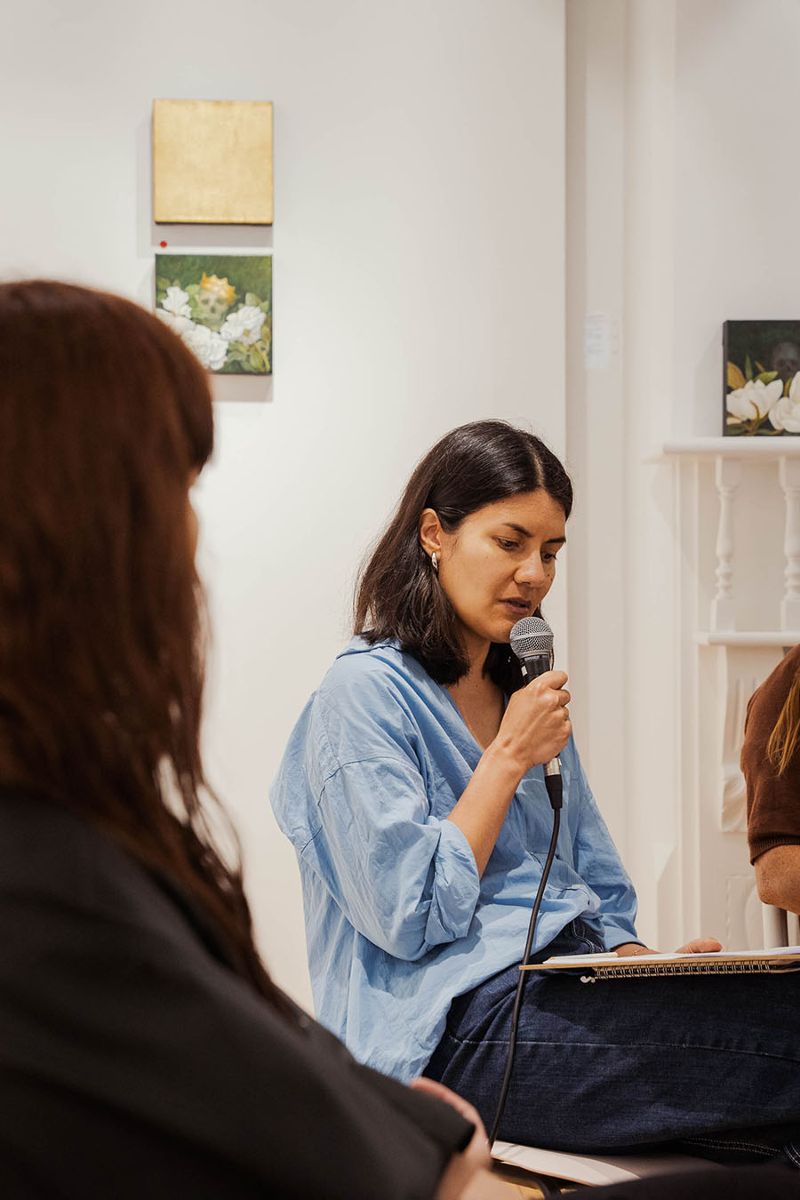
Power shifts also entail how and where people gain education and knowledges. Rayleen Forester of Fine Print Magazine shared that ‘A lot of the learning I am experiencing now is not coming from academia, it is sitting in spaces like this or in conversations with other artist or just witnessing.’ This isn’t to dismiss the educational force of such formal institutions, but rather she acknowledges that there are many pools for people to draw their learning and knowledge from. As artist and poet Elyas Alavi commented on the power of the lived experience,
Knowledge is not just based on the traditional setting of graduating from university, I’ve gained knowledge more through the experience of other people, and especially in my curator work and project work with artists who may not ever have been to an art school, but I feel like they are really amazing poets or artist. Their life journey—there is so much knowledge there.
Relationships need to be improved. They need to be genuine by having greater input from community. This includes better relationships between institutions and artists and community across the sector and not prioritising the needs of the institutions over community, or better yet the outcomes over community, as community should be the outcome. ‘We are running at a speed that is not sustainable. Radical practice is way to conduct yourself, your practice and your community in way that has respect, it is sustainable’ says Pryor. By taking this approach we re-centre the relationship and stop prioritising the desire to commodify all art, but rather start to see art as a tool with multiple purposes. These purposes could include healing, justice, love, progress and processing issues collectively: the limits are truly endless.
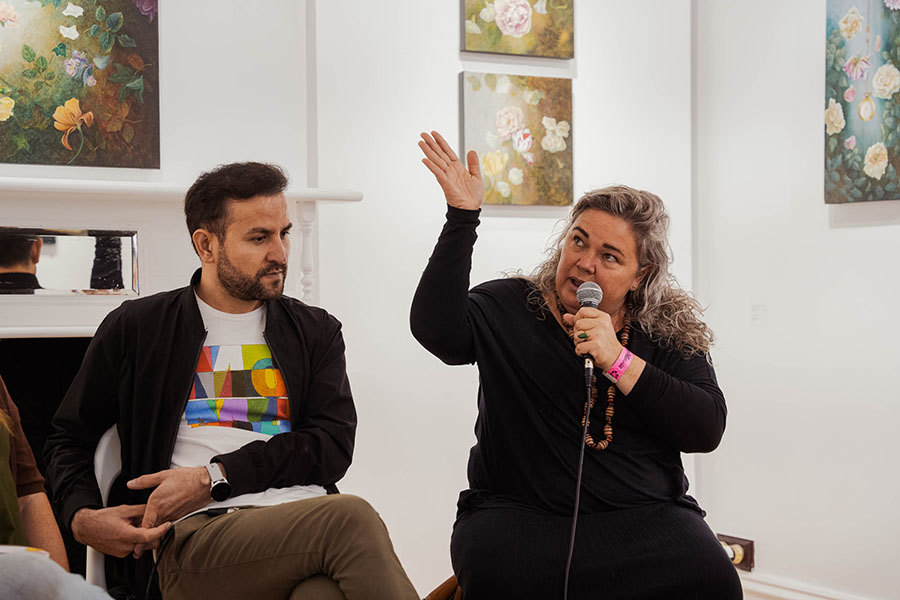
Communities have taken the brunt of dealing with trauma, whether it be Aboriginal communities surviving the brutal colonial project, or the small regional towns who gather their resources and skills to survive disasters like bush fires and flooding. The lack of response from governments is lunacy, especially considering their powers in preventing these issues— sadly this is our reality, and our resilience is running thin. While COVID brought so much death, destruction and pain, out of it we developed a renewed sense of unity, a yearning for change.
I applaud Guildhouse for making the space for us to listen to some incredible people who are making that leap and choosing to rethink and embrace radical practice. I am inspired, but more importantly it makes me hunger for more practical engagement (but then again, this could be my ADHD). While the talks raised more questions than solutions for me, I will take them as fuel for my next steps, even if some are precarious. I feel a sense of optimism, courage and dare I say, a little hope. Changing the status quo of power is hard, but the harder work is what you replace it with.
Listen to Guildhouse's Radical Practice: reVision Symposium 2022 podcast here.
